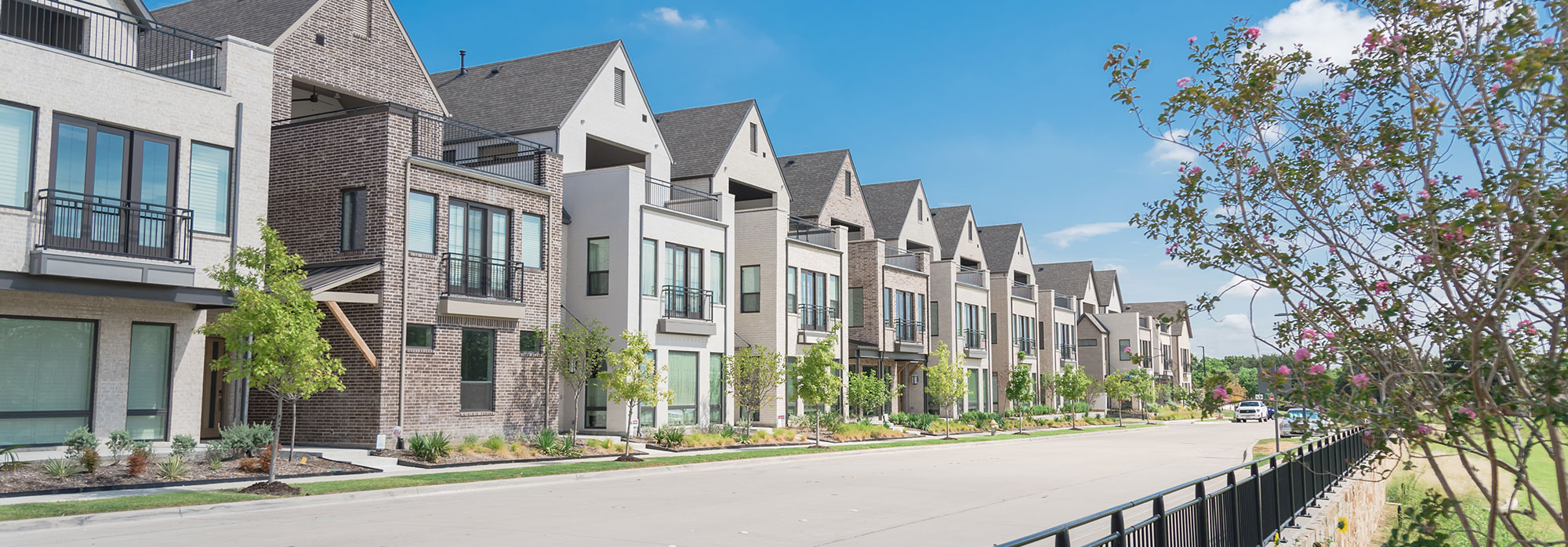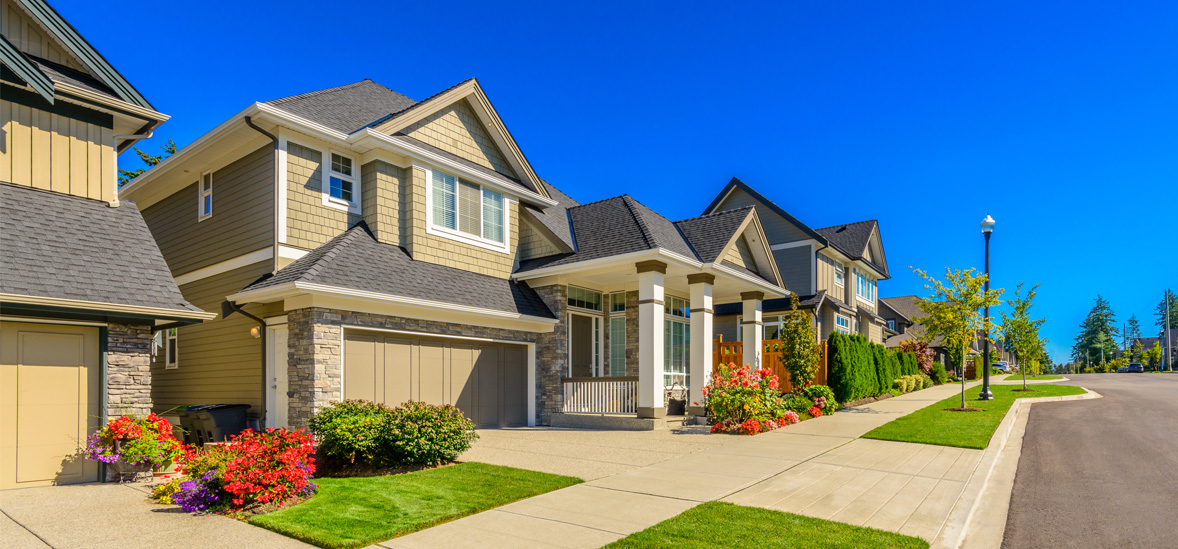The Critical Role of HOA Administration in Upholding Neighborhood Criteria and Laws
Homeowners Associations (HOAs) serve an essential feature in preserving neighborhood requirements and guidelines, working as the guardian of common values and looks within areas. Their duties prolong beyond mere enforcement; they foster a feeling of belonging and liability amongst citizens. By thoroughly taking care of standards and resolving non-compliance, HOAs not just secure property values but also grow an atmosphere where communication and cooperation can grow. Nevertheless, the effectiveness of these management approaches raises essential concerns about administration, resident interaction, and the balance in between policy and individual flexibility. What effects do these dynamics hold for the future of area living?
Relevance of HOA Monitoring
The value of reliable HOA monitoring can not be overstated, as it plays an important role in maintaining the overall top quality and charm of an area. Home Owners' Associations (HOAs) work as the backbone of domestic areas, providing structure and organization that cultivates an unified living environment. Through efficient monitoring, HOAs ensure that neighborhood standards are promoted, thereby safeguarding residential property worths and improving residents' high quality of life.
A well-managed HOA can promote open communication among homeowners, address grievances quickly, and develop a sense of belonging. It establishes rules and guidelines that mirror the area's values, guaranteeing constant upkeep of shared areas and features. Furthermore, efficient administration aids in financial planning and resource allocation, which is important for the sustainability of community projects and maintenance.
Moreover, an efficient HOA can promote neighborhood interaction by cultivating and arranging events collaboration among homeowners - austin hoa management. This not only reinforces partnerships however likewise encourages energetic involvement in decision-making processes. Ultimately, reliable HOA administration is important for cultivating a vivid, appealing, and cohesive area that satisfies the needs and assumptions of its citizens
Key Responsibilities of HOAs
Frequently, Home Owners' Organizations (HOAs) assume a series of crucial responsibilities that are essential for the smooth procedure and upkeep of an area. One of the key tasks of HOAs is to take care of the financial aspects of the community, consisting of budgeting, gathering fees, and maintaining book funds for future repairs and enhancements. This monetary oversight makes certain that the neighborhood remains lasting and well-maintained.
Additionally, HOAs are accountable for keeping typical locations, such as parks, pools, and landscaping. This entails regular upkeep, repairs, and enhancements to make certain these spaces continue to be functional and appealing for residents. Communication is likewise an essential element of HOA duties; they should keep home owners informed regarding community news, upcoming meetings, and modifications to plans or regulations.

In addition, HOAs commonly assist in area events and activities, fostering a sense of belonging and engagement among citizens. They may additionally take care of administrative jobs, consisting of record-keeping and compliance with state and regional policies. Via these responsibilities, HOAs play an essential role in promoting a cohesive and well-managed community, inevitably enhancing residential property worths and homeowners' lifestyle.

Enforcing Neighborhood Specifications
To preserve an unified living atmosphere, HOAs play an essential role in enforcing neighborhood requirements. These criteria, generally outlined in regulating papers such as the Affirmation of Problems, constraints, and covenants (CC&R s), are developed to protect building worths, make certain visual uniformity, and promote a sense of community among residents. HOAs should ensure that all property owners comply with these guidelines to develop a properly maintained area.
Enforcement devices can vary, yet generally entail regular inspections of properties, communication with locals pertaining to offenses, and the charge of charges for non-compliance. Such measures might consist of fines, demands for corrective action, or, in severe situations, lawful proceedings. A proactive strategy to enforcement not only discourages possible violations however likewise fosters a culture of accountability among citizens.
In addition, openness in the enforcement procedure is crucial. HOAs ought to plainly communicate standards, expectations, and repercussions to all home owners. This clarity aids to reduce misconceptions and makes sure that homeowners know their responsibilities. Eventually, effective enforcement of area standards by HOAs is crucial for keeping the total quality of life within the community and supporting the worths that locals have invested in their homes.
Dispute Resolution Approaches
Efficient problem resolution approaches are crucial for maintaining a relaxed and participating neighborhood within property owners' organizations (HOAs) Routine meetings and area online forums can facilitate open discussion, allowing participants to express their point of views and seek mutual understanding.
Furthermore, mediation plays a considerable duty in settling disputes (austin hoa management). Neutral third-party mediators can assist promote discussions and guide celebrations towards a collaborative option. This strategy emphasizes compromise and cultivates a feeling of community, as opposed to enabling disagreements to escalate into contentious conflicts
Furthermore, developing and applying a clear set of guidelines and procedures for managing disputes is essential. These standards should be interacted successfully to all homeowners, ensuring everyone understands the process for lodging problems and looking for resolution. Providing conflict resolution training for board participants and area leaders outfits them with the needed skills to manage disputes effectively, ensuring that problems are solved agreeably and in accordance with the community's guidelines and standards.
Enhancing Home Values
Keeping unified connections amongst citizens not only fosters a feeling of neighborhood but additionally plays a considerable role in boosting residential property values within home owners' organizations (HOAs) Efficient HOA monitoring makes sure that community criteria and policies are supported, developing an environment where building maintenance is prioritized. Properly maintained usual locations, adherence to architectural guidelines, and punctual enforcement of guidelines add to an attractive area that attracts possible buyers.

Furthermore, normal maintenance and improvement tasks, such as Go Here landscaping and center upgrades, reflect favorably on home values. HOAs that successfully manage budget plans to fund these efforts show a commitment to long-term value preservation.
Ultimately, an HOA that focuses on area relations and building criteria produces a desirable living environment. This not just benefits current residents but additionally places the neighborhood favorably in the realty market, making certain that home worths continue to be robust and attractive to future house owners.
Verdict
To conclude, HOA management is necessary for keeping community requirements and laws, thus fostering a harmonious living atmosphere. Via the enforcement of guidelines, regular building inspections, and effective conflict resolution techniques, HOAs play an essential function in boosting building worths about his and advertising openness amongst citizens. The aggressive measures carried out by HOAs not just shield the visual stability of communities but also add to a cohesive atmosphere that sustains open communication and partnership among all residents.
Via efficient administration, HOAs make sure that community standards are maintained, thereby protecting building worths and improving citizens' top quality of life.
Through these obligations, HOAs play a crucial function in advertising a natural and well-managed area, inevitably boosting building worths and citizens' quality of life.
Eventually, reliable enforcement of community requirements by HOAs is important for maintaining the general quality try here of life within the community and promoting the values that citizens have invested in their homes.
Giving dispute resolution training for board participants and neighborhood leaders equips them with the needed abilities to manage disagreements effectively, ensuring that problems are solved amicably and in conformity with the area's regulations and requirements.
Keeping harmonious relationships among residents not just cultivates a feeling of neighborhood but likewise plays a significant role in enhancing building worths within house owners' associations (HOAs)